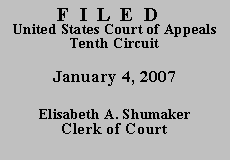

| MONTRA JAMIL HURD, |
|
| v. | |
| LENORA JORDAN, Warden, |
On appeal, Hurd argues his conviction for first degree murder and resulting life sentence resulted from the violation of several of his constitutional rights. First, he contends he was denied counsel during a court-ordered competency evaluation in violation of the Sixth Amendment. Second, he claims due process and equal protection violations as a result of improper delays that caused the trial court to deny him youthful offender status under Oklahoma law. Third, he argues his due process rights were violated as a result of the trial court's improper determination that he should be tried as an adult and competent person. Fourth, Hurd alleges a violation of his Sixth Amendment right to a speedy trial as a result of court-ordered competency evaluations. Finally, he avers his Fifth Amendment privilege against self-incrimination was violated when the trial court admitted his videotaped confession without the benefit of a Denno hearing(1) to determine if it was given freely and knowingly.(2)
Hurd raised these issues twice before the Oklahoma Court of Criminal Appeals ("OCCA"): once in an appeal of his denial of certification as a youthful offender and again on direct appeal of his conviction. In affirming the denial of his youthful offender certification, the OCCA ruled against Hurd on the merits. On direct appeal, the OCCA again dismissed his claims, this time on res judicata grounds.
We are cognizant that we may only grant a COA on a claim adjudicated by a state court if the state court's decision "was contrary to, or involved an unreasonable application of, clearly established federal law, as determined by the Supreme Court of the United States," 28 U.S.C. § 2254(d)(1), or "was based on an unreasonable determination of the facts in light of the evidence presented in the state court proceeding." 28 U.S.C. § 2254(d)(2).
In disposing of Hurd's claims, the magistrate judge of the district court conducted a thorough examination of the record and a cogent 52-page analysis of applicable law, which the district court adopted. We are satisfied that the district court's dismissal of Hurd's claims is well-supported by the record and law.
Accordingly, we AFFIRM the district court's denial of Hurd's petition for writ of habeas corpus for reasons set forth in the magistrate judge's report and recommendation. We further DENY Hurd's motion to proceed in forma pauperis
and this appeal is DISMISSED.
Entered for the Court
Timothy M. Tymkovich
Circuit Judge
*. This order and judgment is not binding precedent except under the doctrines of law of the case, res judicata and collateral estoppel. It may be cited, however, for its persuasive value consistent with Fed. R. App. P. 32.1 (eff. Dec. 1, 2006) and 10th Cir. R. 32.1 (eff. Jan. 1, 2007).
2. After examining the briefs and the appellate record, this three-judge panel has determined unanimously that oral argument would not be of material assistance in the determination of this appeal. See Fed. R. App. P. 34(a); 10th Cir. R. 34.1(G). The cause is therefore ordered submitted without oral argument.
1. See Jackson v. Denno, 378 U.S. 368 (1964) (requiring trial court to review potentially self-incriminatory evidence before its admission).
2. Hurd raised two additional claims in the district court, but does not raise them before this court.